
Doctoral Research Conference Australia
3 - 9 June 2024
3 - 9 June 2024

3 - 9 June 2024
3 - 9 June 2024
Over the next decade, tackling the urgent and complex challenges of climate, security and inequality will require new knowledge, skills and collaboration in order to empower people and communities to adapt and thrive in life and work. Across the College of Design and Social Context, staff, supervisors and candidates span a unique range of disciplines engaged in research and research training. Together, we are distinctive in deploying applied and practice-based approaches that are future-oriented and regenerative. Across our three symposia, Practice Research Symposium, Urban Futures Symposium, and Social Change Symposium, we engage in co-creating knowledge that contributes to an inclusive, sustainable and resilient future for people and the planet.
Joint keynote presentation by Dr Nina Terrey and Dr Melis Senova to launch the inaugural DSC Doctoral Research Conference.
Tuesday 4 June, 5:30pm
Green Brain conference room, Storey Hall, Building 16, Level 7, RMIT City Campus
Dr Nina Terrey, co-founder of ThinkPlace, a global innovation and design company.
This talk will address the opportunities for designers to be more systematic, and regenerative. Drawing from firsthand observations over the last twenty years of the strategic design industry, this talk will explore the changing requirements for designers and why the role is more important than ever. A core provocation is the emerging regenerative literacy designers need to create a positive and lasting impact on the world. The trajectory of regenerative systems is essential for planetary healing and health.
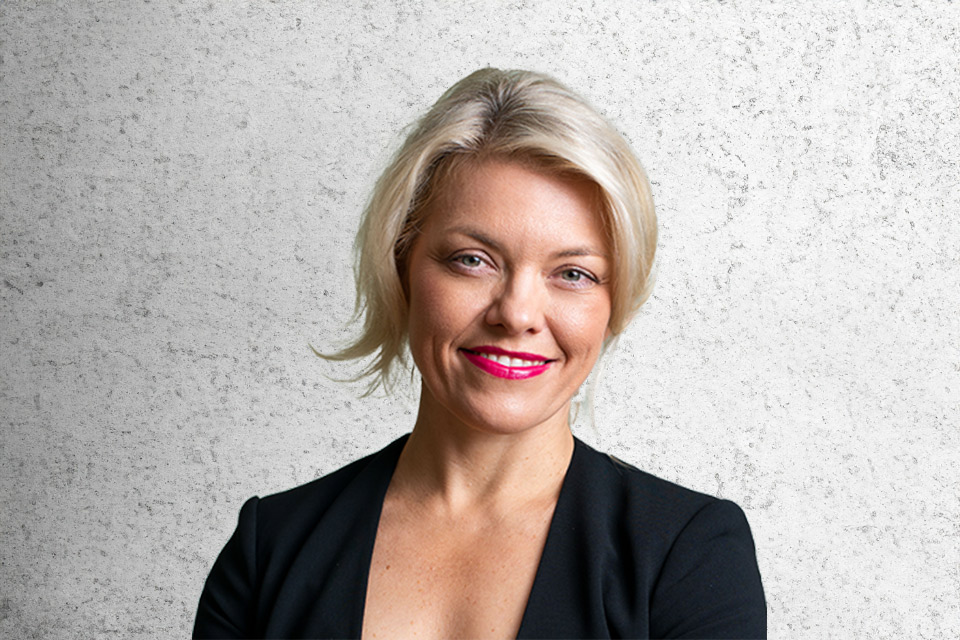
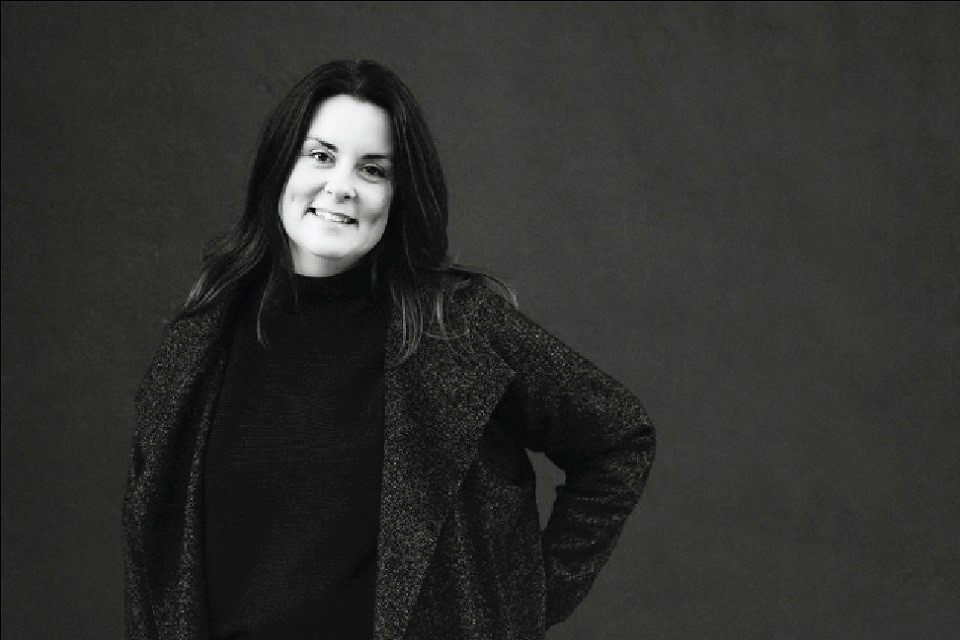
Dr Melis Senova, Author and Founder of This Human, and co-founder of strategic design firm Huddle.
Through exploring the role of 'design character' in design and leadership, this discussion will consider how the inner world of designers directly influences the outer world they create. Regenerative design requires designers and leaders to be potent and ethical practitioners, whose work has long lasting, systemic impact. To instigate this level of change we must focus on developing our character to meet the unique opportunities and challenges this work presents.

Monday 3 June, 5:15pm, Green Brain, Storey Hall, RMIT City Campus
Social Change Symposium keynote presentation by Professor Heather Horst, Director, Institute for Culture and Society at Western Sydney University.
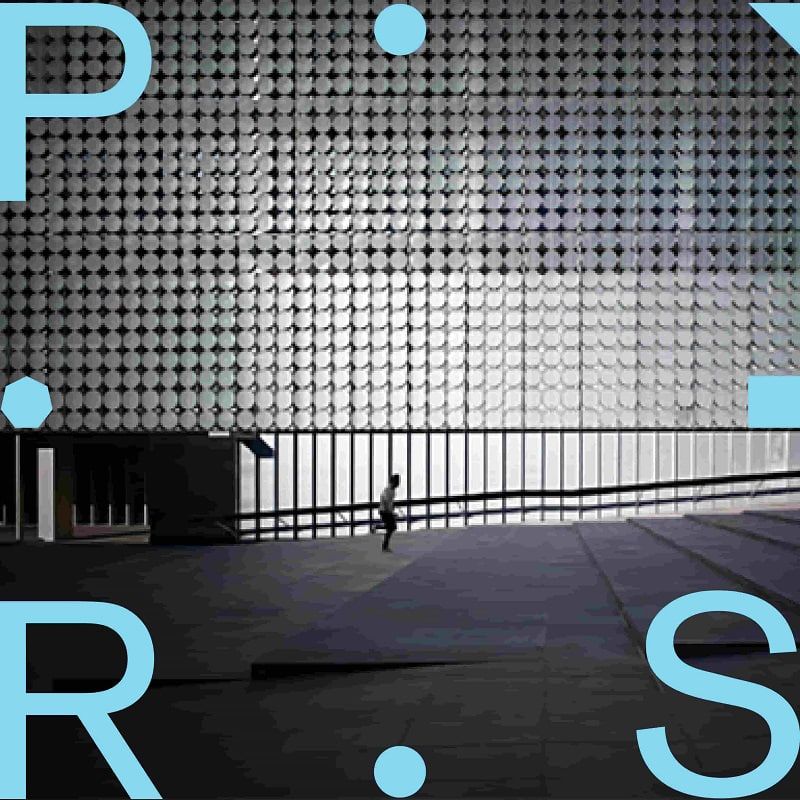
Wednesday 6 June, 6:45pm, Building 100 (Design Hub), RMIT City Campus
Practice Research Symposium joint keynote presentation by Professor Mark Jacques, RMIT University, and Dr Gwyllim Jahn, Creative Director of Fologram.
Monday 3 June, 12:20pm - 1:20pm, Green Brain conference room, Storey Hall, Building 16, Level 7, RMIT City Campus
Maximise your chances of publishing in academic journals. This in-person workshop will prepare you to publish alongside your thesis.
Tuesday 4 June, 2pm - 4pm, Green Brain conference room, Storey Hall, Building 16, Level 7, RMIT City Campus
This workshop explores the different forms of collaboration, engagement and impact involved in humanities and social science research practice, and invites you to reflect on the styles of collaboration that you require or aspire to.
Wednesday 5 June, 12:20pm - 1:20pm, Green Brain conference room, Storey Hall, Building 16, Level 7, RMIT City Campus
This panel discussion considers the multifaceted impact of AI across all stages of HDR candidature including data collection, scholarly writing, examination processes, and creative practices. Chaired by DSC HDR Director Stephen Gaunson.
Thursday 6 June, 12:20pm - 1:20pm, Building 100 (Design Hub), Pavilion 1, Level 10, RMIT City Campus
What does regenerative thinking mean in higher education? Join a lively panel discussion with Andrea Siodmok and Chris Speed, chaired by Naomi Stead, as they argue for a fundamental reimagining of how Australian universities approach research-related education.
Friday 7 June, 12:20pm - 1:20pm, Building 100 (Design Hub), Pavilion 1, Level 10, RMIT City Campus
Reimagine new models of working that flip the value of learning from the attainment of personal qualifications, to participation and collaborative learning within ecological, social and economic grand challenges. Faciltated by Philipa Duthie and Chris Speed.
Saturday 8 June, 12:20pm - 1:20pm, Building 100 (Design Hub), Pavilion 1, Level 10, RMIT City Campus
This PRS workshop draws on techniques from urban mapping and explores spatial and material ideas through making drawings. Learn how these techniques can also be used to tease out relationships between aspects of a research topic to provoke new perspectives.
Throughout the Conference, Higher Degree by Research (HDR) candidates from across all disciplines in the College of Design and Social Context will present their milestones, work in progress and examinations. Session details for HDR presentations are available via the links below. Please note that information for milestone presenters, chairs and referees is available through the RMIT SharePoint site for HDR Milestone Presentations (RMIT login required).

Publishing in academic journals during your PhD or Masters by Research candidature is an effective way to share your research and build your profile. This practical workshop aims to maximise your chances of publication by guiding you through fundamental publishing strategies.
The workshop will cover the publishing process, from initial planning and identifying suitable journals, to manuscript writing, and effectively negotiating the peer review process and addressing feedback. You will have the opportunity to look up the submission requirements of a leading journal in your field and brainstorm a potential article for publication.
Gain greater insight into how to structure and write a journal article. You’ll also receive tips on writing with authority and developing a writer's voice.

Keynote presentation by Professor Heather Horst, Director, Institute for Culture and Society at Western Sydney University.
This talk will focus on the growth of automated decision-making systems and their impact on everyday life. Using case studies from the majority world, a 'decentering' framework will be introduced to understand technologies like AI and ADM. The discussion will explore the creation, implementation, thwarting, and alteration of technical systems in non-Western regions, highlighting the social impact of these technologies. By examining innovation, investment, discourse, and practice, the talk will demonstrate the consequences of ADM and suggest ways to develop more nuanced understandings of these emergent technologies. It will also discuss alternative futures for these technologies based on different practices and possibilities.
HDR presentations may be given in-person, online or in hybrid mode. View stream schedules and abstracts via the links below.

The higher education sector and the governments that directly and indirectly support research have intensified their interest in impact and engagement with industry and communities in contexts such as Australia and the UK. Whilst humanities and social science research have always involved partnership and collaboration, this increased interest in partnership and impact require scholars in our fields to better articulate the mechanisms that underpin the forms of collaboration that our research practice entails.
This workshop explores the different forms of collaboration, engagement and impact that are often involved in humanities and social science research practice. Drawing upon qualitative and ethnographic research in different settings, the workshop draws attention to the power dynamics that shape the forms of collaboration (and impact) that may be possible for different research endeavours.
Introducing a working theory of the different genres of collaboration in HASS research practice, researchers and practitioners are invited to reflect upon and discuss their own genre of collaboration that are required – or aspired to – in their current and future research.
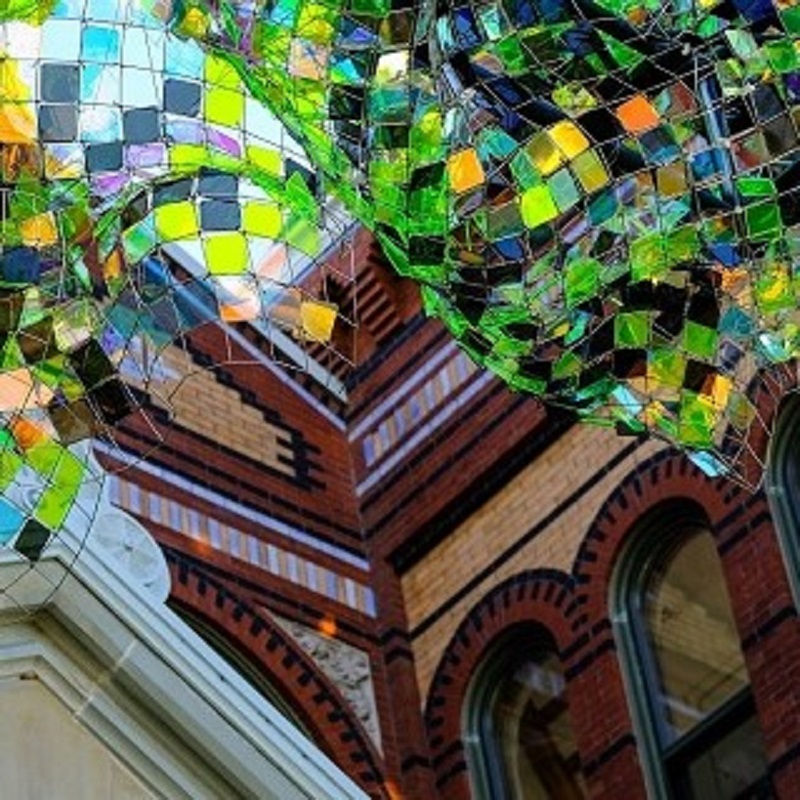
This talk will address the opportunities for designers to be more systemic, systematic, and regenerative. Drawing from firsthand observations over the last twenty years of the strategic design industry, this talk will explore the changing requirements for designers and why the role is more important than ever. A core provocation is the emerging regenerative literacy designers need to create a positive and lasting impact on the world. The trajectory of regenerative systems is essential for planetary healing and health.
Through exploring the role of 'design character' in design and leadership, this discussion will consider how the inner world of designers directly influences the outer world they create. Regenerative design requires designers and leaders to be potent and ethical practitioners, whose work has long lasting, systemic impact. To instigate this level of change we must focus on developing our character to meet the unique opportunities and challenges this work presents.
HDR presentations may be given in-person, online or in hybrid mode. View stream schedules and abstracts via the links below.

This panel discussion explores the multifaceted impact of AI across all stages of HDR candidature, including data collection, scholarly writing, and examination processes, including the nuanced challenges posed by AI for candidates engaged in creative practices. In recent years, AI tools have brought significant changes in the landscape of academic research, particularly for postgraduate candidates, where the emphasis lies on critical insights and original contributions to knowledge. This timely discussion on the implications of AI for Higher Degree by Research (HDR) candidates will be chaired by DSC HDR Director Stephen Gaunson and includes representatives from across the university, including diverse academics renowned for their expertise in grappling with AI systems within their fields of research.

Celebrate the opening of PRS Australia at the Design Hub with welcome drinks and finger food in the Design Hub Gallery. Join us in the gallery space for networking opportunities with our community of practice researchers and to view the research of our PhD and Masters by Research examination candidates.
The PRS official welcome and keynote will then take place in the Design Hub Lecture Theatre at 6:45pm. The keynote will feature presentations by Dr Mark Jacques and Dr Gwyllim Jahn, both recent graduates of the Design Practice PhD program at RMIT University. Professor Vivian Mitsogianni, Dean of RMIT's School of Architecture and Urban Design will introduce and moderate the discussion as Mark and Gwyllim reflect on their experiences of the PRS, including beginning points, the trajectory of their candidature and the outcomes that emerged from their research. The discussion will explore the distinction and overlaps between industry and the academy in the context of design practice research, the specific ways the speakers have been able to leverage their engagement across both for mutual benefit, and how the PhD has catalysed the next phase of their practice.
HDR presentations may be given in-person, online or in hybrid mode. View stream schedules and abstracts via the links below.
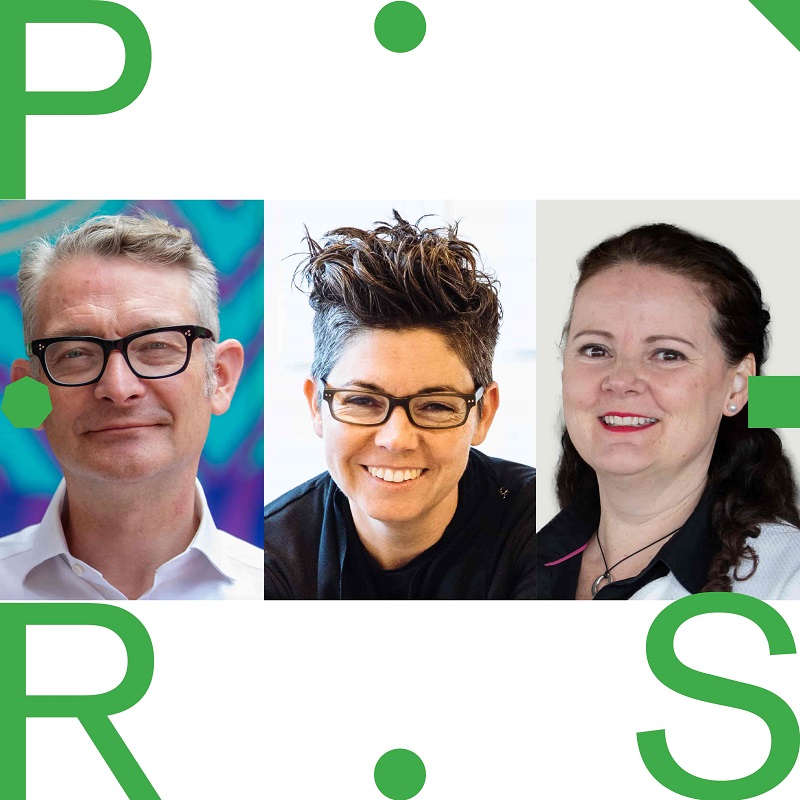
What does regenerative thinking mean in higher education? What would a regenerative educational future look and feel like for all of those engaged: from undergraduate students, to HDR candidates, to teaching staff?
Join a lively panel discussion with Andrea Siodmok and Chris Speed, chaired by Naomi Stead, as they argue for a fundamental reimagining of how Australian universities approach research-related education - including at RMIT. Regenerative thinking allows a shift beyond traditional concepts of 'sustainability' which, while sorely needed, need to go further to address the climate crisis. A regenerative futures framing offers the promise of extending the fundamental tenets of sustainability - environmental conservation, economic stability, and social equity - to embrace a dynamic, entangled complexity of the human and more-than-human worlds. And in considering what all this means for higher education and research, including for HDR candidates, the panellists will question how we might cast future higher education experiences into a regenerative context that is productive and nourishing, based on care, and that considers people, planets and the systems and processes that connect us?

'Regenerative futures' as a framing concept has the potential to be significant within RMIT - across the full breadth of its disciplines, fields, and arenas of impact. But some will be wondering exactly what it all means, where such ideas have come from, and how they might practically land in a higher education context - including how they can inform transformative education and research. This important talk by guest speaker Philipa Duthie, Oceania Director of the Royal Society of the Arts (RSA), will trace the intellectual history of Regenerative Futures, including how this paradigm has particular significance in an Asia Pacific context in light of Indigenous and First Nations knowledge stretching back more than sixty thousand years.
Introducing the RSA's ground-breaking work in this arena including the 'Regeneration Rising' podcast, Duthie will also reflect on the outcomes of an emerging collaboration between RSA Oceania and RMIT that explores the significance of regenerative thinking in higher education contexts worldwide - an essential intervention in our time of climate crisis. Following this, Professor Andrea Siodmok will preview a white paper on this topic: a collaboration between RMIT and the RSA which proposes a path for Universities to move toward a regenerative approach through strategic planning, policy-making, and funding frameworks, whilst shaping future practitioners and citizens.
HDR presentations may be given in-person, online or in hybrid mode. View stream schedules and abstracts via the links below.
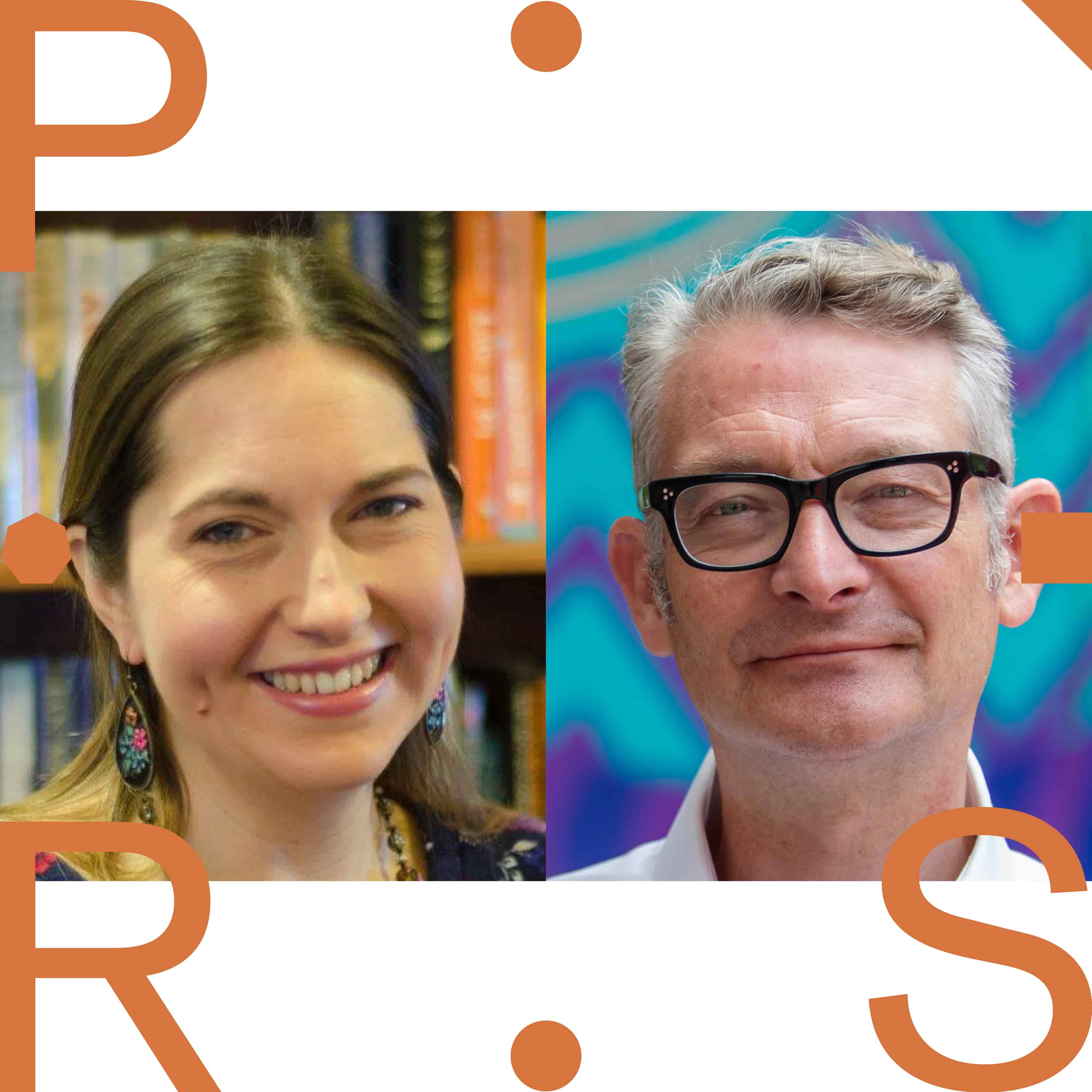
What could Regenerative Research Futures look like? Complex social and environmental challenges require complex interdisciplinary teams that can collaborate across multiple research methods to impact positive change. If the current PhD model supports individual research excellence, what would a collaborative, practice based, life-long research programme look like?
This workshop, facilitated by Royal Society of the Arts Oceania Director Philipa Duthie and Chris Speed, Professor of Design for Regenerative Futures, invites PRS participants to reimagine new models of working that flip the value of learning from the attainment of personal qualifications, to participation and collaborative learning within ecological, social and economic grand challenges.
HDR presentations may be given in-person, online or in hybrid mode. View stream schedules and abstracts via the links below.
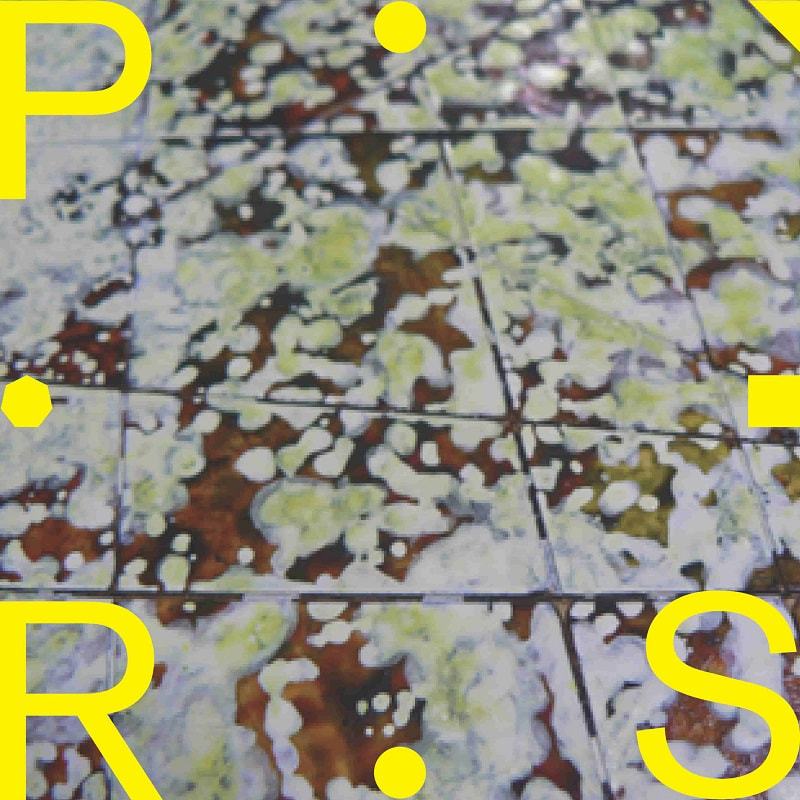
Maps are frequently associated with ambitions to create precision and documentation of the ‘real’. Yet maps are always partial and necessarily involve distortion. They also create forms of ambiguity that can be provocative and generative. This workshop draws (literally!) on techniques from urban mapping and explores spatial and material ideas through making drawings. These techniques can also be used in other disciplines to tease out relationships between aspects of a research topic and provoke new perspectives. Anyone interested in visualising and speculating on current and possible future configurations of research ideas is welcome to join this workshop for participants in the June Practive Research Symposium (PRS) 2024.

Please join us at Oxford Scholar to celebrate the closure of the DSC Doctoral Research Conference Australia - June 2024.
This is an informal social occasion to connect, relax and reflect on the full week of conference highlights!
Refreshments will be provided.
HDR presentations may be given in-person, online or in hybrid mode. View stream schedules and abstracts via the links below.
Acknowledgement of Country
RMIT University acknowledges the people of the Woi wurrung and Boon wurrung language groups of the eastern Kulin Nation on whose unceded lands we conduct the business of the University. RMIT University respectfully acknowledges their Ancestors and Elders, past and present. RMIT also acknowledges the Traditional Custodians and their Ancestors of the lands and waters across Australia where we conduct our business - Artwork 'Sentient' by Hollie Johnson, Gunaikurnai and Monero Ngarigo.